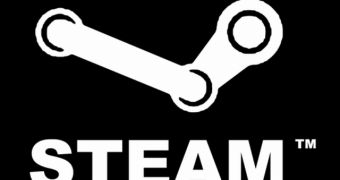While the news of the death of PC gaming has been greatly exaggerated, no one can deny that there are some issues plaguing the platform that has arguably done more for videogames than any other. And the biggest of the problems confronting PC gaming is piracy, an ugly daemon that rears its head on the Xbox 360, the PlayStation Portable and the PS2 as well, but in a highly reduced manner.
As 2008 showed, draconian restriction measures based on the idea of copy protection will not deter some from pirating. Spore, which had the heaviest handed DRM built around it, was the most pirated game of 2008 and Electronic Arts alienated a lot of fans in the process of launching the title. So, publishers are implementing other ways of limiting piracy, such as offering exclusive content for each paid purchase of a game or turning up DLC at a quick rate, like Fallout 3 is doing.
But the real salvation will only come from a company that knows videogames must change to continue to exist on the PC and that company is, in my book, Valve. The guys responsible for Half Life, Team Fortress and Portal have also created something much more important than their videogames: their digital distribution service, Steam.
Jason Holtman, who is Valve's director of business development, has recently said to the Game Business Law summit in Dallas that “Pirates are under served customers,” (my emphasis) adding, when talking about the philosophy behind Steam, that “We’re not just a way of selling game… What we are, actually, is a platform.” These two sentences could spell the future of selling, playing and not pirating videogames in the future.
Only a minority of those pirating games are doing so from a pure sense of entitlement or for the intrinsic joy of using someone else's work without paying. Some pirated because of price points not adapted to incomes, some pirated because games lack demos showing off what the experience is all about before paying for it, some pirated because of getting a product free of DRM and other third party programs (dare I say “spyware?”) and there are some who pirated because their favorite videogame only arrives in their country six months later. All of these people are “under served” and they could become customers if their grievances were listened to.
And Steam (along with the plethora of other digital download services, like D2D, Impulse, GOG) can solve all these issues. Games can be launched at the same time everywhere, and prices can be customized; there's only the need to authenticate using Steam; time limited demos of all games can be easily created. And there are other bonuses like Steamworks and Steamcloud, which aim to store info like save games on a server, making gaming pretty much independent of the machine on which one plays. Piracy would be severely limited and PC gaming would once again be a worthy endeavor for publishers to divert resources to.
The problem? Both brick and mortar stores and big publishers fear Steam. In the medium run, it makes the former lose money and in the long run, it can put it out of business while severely undercutting the latter. Still, more and more publishers, the biggest until now being Electronic Arts, have realized that the advantages of Valve's digital distribution service outweigh the threats it poses.
So, next time a scuffle breaks out on the Internet regarding the PC, death and piracy will be the reasons to talk about Valve, Steam and the quiet revolution that will make pirates turn into customers. It won’t be long now.

 14 DAY TRIAL //
14 DAY TRIAL //